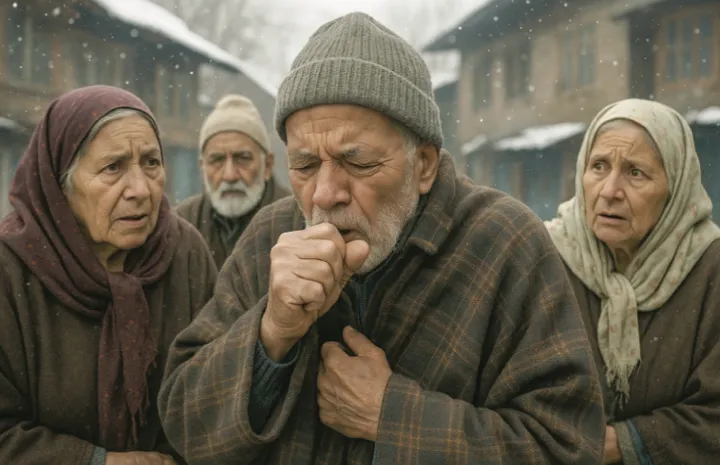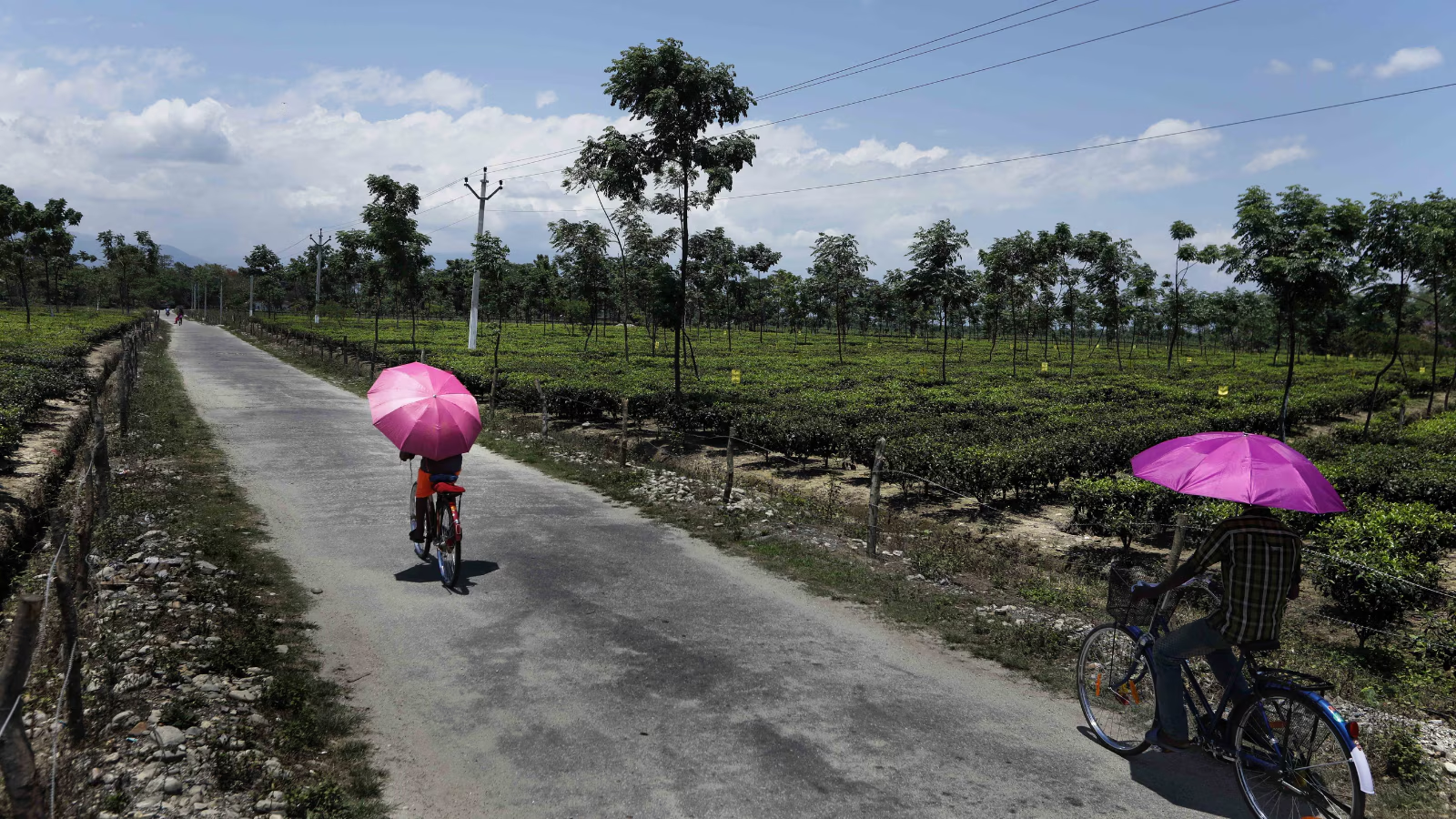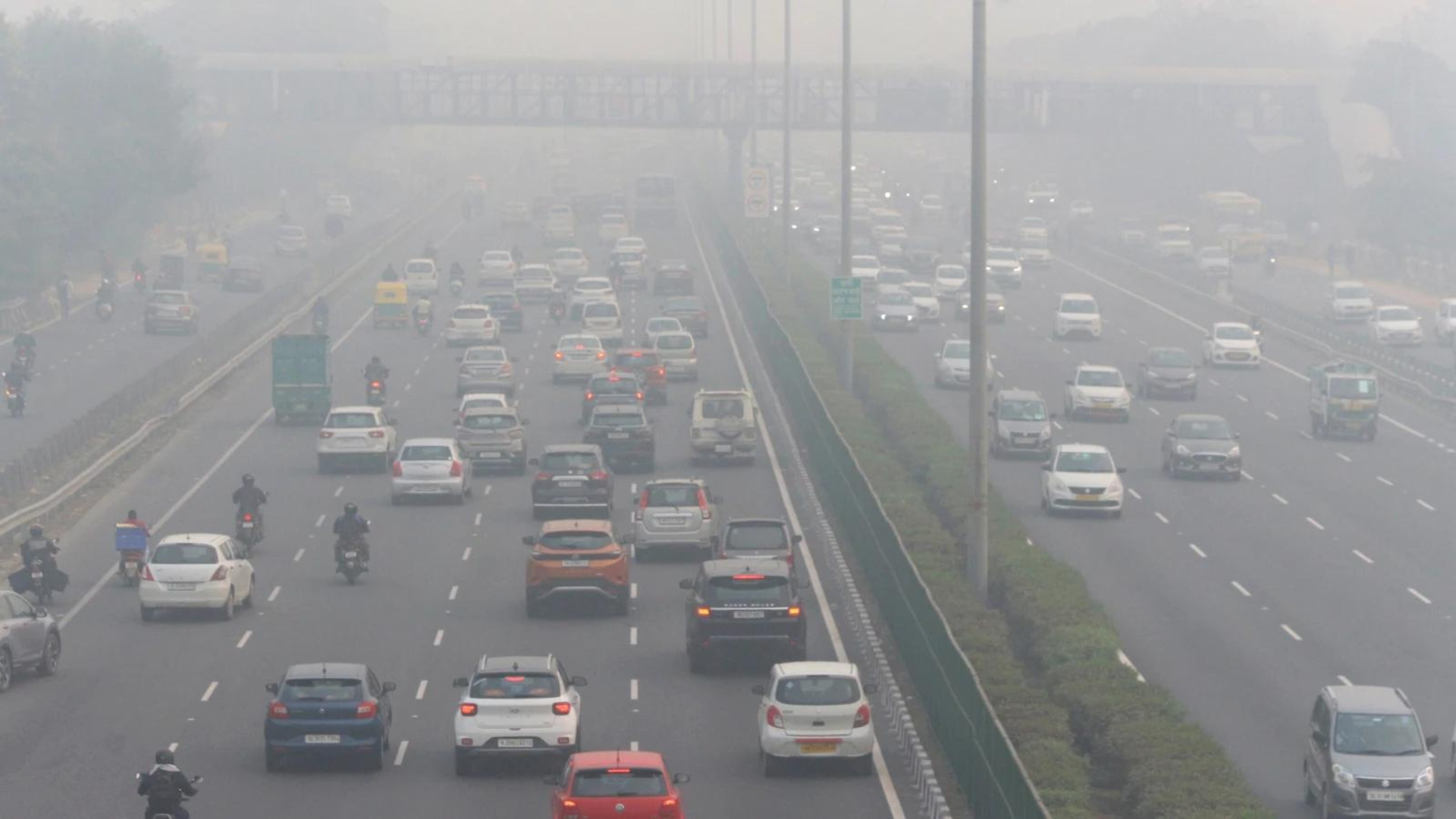As the autumn leaves barely settled on the ground, I began receiving call after call for home visits: “Doctor sahib, my father is coughing badly,” “My mother cannot breathe properly,” “My child’s chest is making a whistling sound.” It feels as though the Valley is collectively gasping.
This year, the cold has arrived before the body could prepare. In medical clinics, in warm kitchens, in living rooms heated by bukhāris, one thing has become clear: the elderly and young children are carrying the heaviest burden.
This is the right time to pause and talk, human to human, about what is silently unfolding in our homes. Because November is not just the month of early winter in Kashmir; it is the World COPD Awareness Month, a reminder that our lungs deserve attention, care, and respect.
Harsh Reality Behind the Cold
Kashmir’s winter is not like winter elsewhere. It is beautiful,yet medically harsh. Three things make our people more vulnerable:
- Indoor Smoke: Bukhāris, coal stoves, gas heaters, kangris; each fills the room with warmth, and with it, invisible particles that irritate the lungs. Seniors with fragile airways breathe these particles day and night.
- Closed Rooms, Little Ventilation: We shut doors and windows to keep out the cold. We insulate windows with blankets, polythene sheets, and other coverings to keep our rooms warm. But this traps dust, smoke, viruses, bacteria, and moisture—turning homes into perfect breeding grounds for respiratory infections.
- Temperature Swings: Going from a warm bukhāri room into the freezing outside air shocks the airways. Children start wheezing. Seniors start coughing. This sudden exposure is one of the biggest triggers of chest infections, asthma and COPD flare-ups.
Seniors and Children
Older adults often hide their symptoms until it becomes serious. They say, “Bas sardi lagi hai.”
“Thodi der mein theek ho jaaega.”
But what starts as a simple cough can turn into pneumonia, COPD flare-ups, or dangerously low oxygen levels. As per global data, winter is the deadliest season for seniors with respiratory illnesses, and Kashmir’s winters are among the longest.
Children Lungs That Struggle Harder
Children breathe faster than adults. Their lungs are smaller, airways narrower. One chest infection can make them breathless within hours. Many parents say, “Khansi toh normal hai is season mein.” Not always.
A “normal cough” that does not improve may be an early sign of: viral bronchiolitis, pneumonia, allergy-induced wheezing, repeated smoke exposure, poorly ventilated rooms, mold or damp air
This year, I have seen several children who were completely fine a week ago, now battling deep chest infections, all because the winter arrived too early for their bodies to adapt.
World COPD Awareness Month Matters for Kashmir
COPD (Chronic Obstructive Pulmonary Disease) is a long-term lung condition that causes breathlessness. People mistake it for “old age coughing,” but in reality: smoking, tobacco (tamokh) wood smoke, coal smoke, indoor pollution, repeated infections in childhood and young age all make COPD extremely common in Kashmir. In elderly Kashmiris, COPD is one of the leading causes of hospital visits every winter.
World COPD Month is not just an awareness campaign—it is a wake-up call for Valley residents. Because here, COPD is not a rare disease. It is a household reality.
How Kashmir Can Protect Its Lungs This Winter
Let’s step away from the usual “drink hot water, rest well” advice. Here are some practical and culturally relevant ways to keep our seniors and children safe.
- The Warm Room Rule (WRR): Designate one warm room in the house for seniors and children. Keep one window uninsulated and open it twice a day for 5 minutes to ventilate the room. This keeps it warm and reduces infection load.
- Kangri Etiquette: Avoid using a smoky kangri—use fully burned charcoal. Holding the kangri too close to the chest causes direct warm-air inhalation, triggering cough and dryness. Teach seniors and children the 6-inch rule: keep the kangri at least 6 inches away and never keep it under the pheran for long, especially if it has smoke.
- The Bukhāri Break: Every 3–4 hours, open the door slightly for 30 seconds. Just long enough to let in oxygen, not cold.
- The “Winter Walk” Indoors: You don’t need a park to walk in winter. Create a 10-minute walking route inside the home: corridor, long rooms or hall. This prevents mucus buildup, boosts immunity, and keeps lungs active—especially for seniors.
- Steam Smart, Not Hard: Steam is helpful, but very hot or intense steam can burn the airways and worsen swelling. Use mild steam for just 3 minutes—avoid the ‘face-under-towel’ style. You can also keep gentle room steaming twice a day for 10 minutes.
- Moisturise the Air: Place two bowls of water near the heat source. They prevent excessively dry air that triggers coughing.
- “Cough Watch” Rule: If a cough lasts more than 72 hours in seniors, OR if breathing looks fast or noisy, it is no longer “just a cough.” Get medical help immidiately.
- The Early Morning Danger Hour: Winter air is heaviest and most polluted between 5 am to 9 am. Keep seniors and children indoors during these hours. Or if the have to come out, they must use a muffler to cover their mouth and nose.
- Keep Emergency Numbers Ready: Write down emergency number and stick it on a calendar.
- Never Ignore Breathlessness: Cough is manageable. Fever is manageable. But breathlessness is always a red flag. It means the lungs are struggling. Immediate medical help is necessary.
- Keep your time in the bathroom short: Avoid unnecessary lingering, and try not to wet your clothes during wazu, as damp garments increase the risk of catching a chill.
- Wear warm layered clothing: Always cover your feet, head and ears. Seniors and children lose body heat very quickly, especially through the head and feet. Keep socks dry, use a cap or scarf, and avoid sudden exposure to cold air after being indoors. Always drink warm water and eat warm food.
- Use a mask if you are ill or if someone around you is sick. Keep a safe distance from people with cough or fever, wash your hands frequently, and avoid touching your face. Encourage seniors and children to follow these precautions strictly to prevent infections.
Take care of your seniors and watch your children closely. Ventilate your homes and keep your bukhāri safe. Never leave any heater or bukhāri on when no one is in the room.
The post Chest Infections in Winters appeared first on Greater Kashmir.



